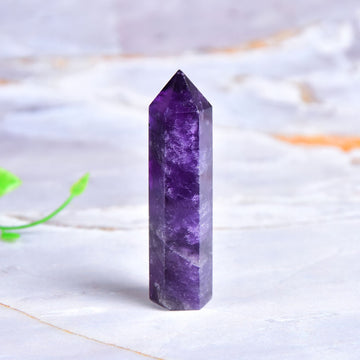The words “pain and suffering” tend to be inextricably tethered, like Siamese twins. It seems unfathomable that one could exist without the other. But many spiritual teachers will tell us that much of our suffering is self-created in the mind.
In terms of mental pain — when the monkey mind replays hurtful scenarios or negative thoughts — gratuitous suffering is often created. But what about actual physical pain, or pain that is caused by external events and inflicted on us by others? Is it possible for those experiences to ever be free of suffering?
In the past two years, I’ve undergone two abdominal surgeries that were supposed to be curative, but ended up leading to additional complications and illness. Having my belly cut open multiple times left me feeling as if everything contained within me could come tumbling out at any moment.
I felt as if I’d committed seppuku — the ancient act by the Samurai of self-disembowelment — and survived. The pain and suffering I experienced was so great that I had many wondrous pity parties during my recovery. As I lay in my bed clutching a pillow to my belly to help brace my body and minimize the pain, I found myself angry that the sages would say that this suffering was self-created in my mind.
Since then, I’ve spent a lot of time pondering whether pain and suffering can truly be separate. If so, what part of my experiences in those circumstances and in my life constitutes the pain, and what is the suffering?
I recalled that when I felt pain in my abdomen from even the slightest movement, I suffered. But when my best friend came to visit and was cracking me up, the pain caused by too much laughter somehow did not evoke suffering. When I was alone on a walking path only able to shuffle at a sloth’s pace, I suffered. But when a loved one was at my side offering an arm for support, the same physical pain from walking did not evoke suffering.
These incidents and many more that I’ve observed since my surgeries have taught me there are indeed ways to breathe space in between pain and suffering. When that space is cultivated to a greater expanse, suffering may not remain as long or may never arise at all.
Here are six practices that have helped me to manage my suffering a little bit better:
1. Take a few moments in stillness.
When pain arises, take a few moments to just sit and be quiet, so as not to add a judgment or story to that pain. Usually suffering is seeded in thoughts of how the pain shouldn’t be, or ruminating about how much we want to escape from the pain. Accepting the presence of pain is the first step to being free of the suffering that may be associated with it.
2. Breathe into the pain.
Breathing into the pain will allow you to explore how it feels it in your body. Emotional or mental pain can manifest in physical places such as the chest, the solar plexus, or the throat. Try inhaling love, light and healing to that area, and then exhale out the pain. The movement and sense of empowerment will allow you to untangle from feelings of suffering.
3. Ask if the pain is trying to tell you something.
If your feelings are hurt by a cruel comment, is the person who inflicted the pain someone you want to continue to be associated with? If the quinoa or kale you just ate upsets your stomach, is the food lauded as healthy something that might not actually be good for you? Do you need to take a break from sitting at your computer if your back hurts?
This exercise allows you to take action or make some informed decisions, so that the pain doesn’t lead to more suffering.
4. Think of pain as an opportunity to heal from the inside out.
When you find yourself in a state of suffering ask yourself: What is the gift or opportunity? Does it remind you to have compassion the next time you run into someone going through similar circumstances? Does it trigger a memory of a similar past event that you now have the opportunity to heal from?
Oftentimes, understanding the meaning behind our suffering opens the pathway to releasing or transmuting it.
5. Ask if the suffering is feeding your ego.
If the suffering feels very sticky, ask if there may be any unhealthy “benefits” to that suffering. Is it feeding your “pain-body” meaning, do you get attention and sympathy from others by perpetuating that suffering? Or is it an excuse to not let go of things that no longer serve you? Think about it.
6. Reach out to others for support.
Lastly and perhaps most importantly, if you can’t get out of suffering on your own, have you reached out for support? Receiving help, perspective and compassion from others is a strong antidote, by allowing us not to have to carry the burden of our suffering alone.
It is my hope that sharing the things that have worked for me will help you to experience pain differently, without always having to suffer from it.



































